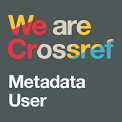Correlation among Mother Tongue, Socio-Economic Status and Academic Performance of Social Studies Students
DOI:
https://doi.org/10.51574/ijrer.v4i3.3066Keywords:
Acedemic Performance, Mother Tongue, Social Studies, Socio-economic StatusAbstract
This study investigated the relationship among mother tongue (Urhobo language), socio-economic status, and the academic performance of social studies students in upper basic schools in Delta State. The study focused on one independent variable, mother tongue (Urhobo language instruction), while academic performance was the dependent variable, and socioeconomic status was adopted as a moderating variable. A quasi-experimental pre-test post-test control group design was the research design. The population comprised 80,912 Upper Basic 8 Social Studies students in Delta State during the 2023/2024 academic session. A sample of 100 students was selected using multistage, purposive, and random sampling techniques. One school was used as the experimental group, receiving instructions in the Urhobo language, while the control group was taught in the English language. Data was collected using a Social Studies Mother Tongue Test (SSMTT), which had a reliability coefficient of 0.89. Research questions were answered using descriptive statistics, while hypotheses were tested using a t-test at a 0.05 level of significance. The findings revealed that students taught social studies with their mother tongue performed significantly better than those taught with English, demonstrating that mother-tongue instruction enhances comprehension, retention, and engagement. Additionally, socio-economic status did not moderate the relationship between mother tongue and academic performance of students, suggesting that language familiarity is more influential than financial status. The study recommended policy initiatives, promoting indigenous language instruction, and increased parental support for mother-tongue learning. These findings contribute to educational research by reinforcing the cognitive advantages of using mother tongue for teaching and its potential for improving learning outcomes across socioeconomic groups.
References
Adegbite, W., & Akindele, F. (2021). Language and learning in Nigerian schools: Implications for educational development. Lagos: University Press.
Adeyemi, T. (2019). Challenges of Social Studies Education in Nigerian Schools. Educational Journal of Nigeria, 12(3), 45-58.
Akol, A. (2024). Socio-economic status and its impact on language development in pre-school children in South Sudan. International Journal of Linguistics, 51 (1), 44-55. Attahakul, P. (2025). Education’s Role in Creating a Sustainable and Equitable Society. Journal of Asian Language Teaching and Learning (Online), 6(1), 81-93. https://so10.tci-thaijo.org/index.php/jote/article/view/1794
Atubi, O. F. (2021). Effects of selected instructional resources on academic performance of Upper Basic Social Studies Students in Delta State. An Unpublished Ph. D. Thesis submitted.
Atubi, O., F. (2024). Analysis of cognitive achievement of social studies students: perspectives of sex and school location. African Journal of Social Studies, 5 (1), 3q-44.
Bock, Z., Heugh, K., Stroud, C., & Van Avermaet, P. (Eds.). (2022). Language and decoloniality in higher education: Reclaiming voices from the south. Bloomsbury Publishing.
Choudhary, F. R., & Durrani, R. (2020). Mother Tongue as Medium of Instruction for Effective Communication and Science Learning at Elementary Level. Global Educational Studies Review, 5(4), 42-50. https://doi.org/10.31703/gesr.2020(V-IV).05
Cohen, A. D., & Henry, A. (2019). Focus on the language learner: Styles, strategies and motivation 1. In An introduction to applied linguistics (pp. 165-189). Routledge.
Eshiet, I., & Okon, P. (2023). Mother tongue instruction and academic performance in Nigerian secondary schools. Ibadan: Spectrum Books.
Filippi, R., Ceccolini, A., Perry, R. C., & Thomas, M. S. (2025). The impact of multilingualism and socio-economic status on academic performance: evidence from the SCAMP and the national pupil databases. International Journal of Bilingual Education and Bilingualism, 28(1), 53-72. https://doi.org/10.1080/13670050.2024.2397445
Hanzawa, K. (2024). Development of second language speech fluency in foreign language classrooms: A longitudinal study. Language Teaching Research, 28(3), 816-838. https://doi.org/10.1177/13621688211008693
Igbokwe, C. (2021). Bilingual education and student achievement in Nigeria. Journal of Applied Linguistics, 14(3), 45-60.
Lo, Y. Y. (2019). Development of the beliefs and language awareness of content subject teachers in CLIL: Does professional development help?. International Journal of Bilingual Education and Bilingualism, 22(7), 818-832. https://doi.org/10.1080/13670050.2017.1318821
Marcilese, M., Name, C., Augusto, M., Molina, D., & Armando, R. (2019). Mother-tongue education, linguistic variation and language processing. Ilha do Desterro, 72(3), 17-39. https://doi.org/10.5007/2175-8026.2019v72n3p17
Nwokocha, M., & Adejumo, T. (2023). The language transition dilemma: Impacts on students' comprehension and academic success. Educational Review, 22(2), 78-94.
Oyetade, S. (2022). Indigenous languages and cognitive development: A study on Nigerian students. African Journal of Language Studies, 19(4), 112-130.
Oyetunde, T. (2015). The Role of Indigenous Language Instruction in Educational Equity. International Journal of Bilingual Education, 5(3), 200-215.
Oyetunde, T. (2015). The Role of Indigenous Language Instruction in Educational Equity. International Journal of Bilingual Education, 5(3), 200-215.
Padilla, A. M., & Chen, X. (2025). Positive Psychology in Second Language Teaching and Learning across the Life Span. In Positive Psychology and Second Language Education (pp. 109-134). Cham: Springer Nature Switzerland. https://doi.org/10.1007/978-3-031-95136-7_6
Ramonienė, M., & Ramonaitė, J. T. (2024). The role of the mother in Lithuanian heritage language maintenance. Languages, 9(7), 241. https://doi.org/10.3390/languages9070241
Sakaryalı, Ö., Bal, M., & Yıldırım, Y. (2024). Investigating the Relationship Between Mother Tongue Education and Creativity: A Systematic Review at the K-12 Level. SAGE Open, 14(4), 21582440241307806. https://doi.org/10.1177/21582440241307806
Sumartana, I. M., Hudiananingsih, P. D., & Rouf, M. A. (2025). Balancing globalization and linguistic heritage involves preserving mother tongues through inclusive education that values cultural identity and language diversity. Journal of Language, Literature, Social and Cultural Studies, 3(2), 179-196. https://doi.org/10.58881/jllscs.v3i2.347
Thomas, M., Ceccolini, A., & Perry, R. (2024). The Impact of Multilingualism and Socio-Economic Status on Academic Performance: Evidence from the SCAMP and the National Pupil Databases.
Uchenna, B., & Bello, K. (2020). Language barriers and academic achievement: A study of Nigerian students in secondary education. Journal of Educational Research, 25(1), 67-85.
Velasco, Y. P. (2025). The interplay between language ideologies and mother tongue-based multilingual education (MTBMLE) policy implementation in the Philippines. The Asia-Pacific Education Researcher, 34(2), 765-775. https://doi.org/10.1007/s40299-024-00894-7
Williams, N. (2023). Neighbourhood socioeconomic disadvantage and language development in preschool children: A longitudinal study. Journal of Community Psychology, 51 (1), 103-119.

Downloads
Published
How to Cite
Issue
Section
License
Copyright (c) 2025 Avwerosuoghene Princess Okpomoh, Dania Ogbianugene Peter, Ogheneakoke Edore Clifford

This work is licensed under a Creative Commons Attribution-ShareAlike 4.0 International License.









1.png)













